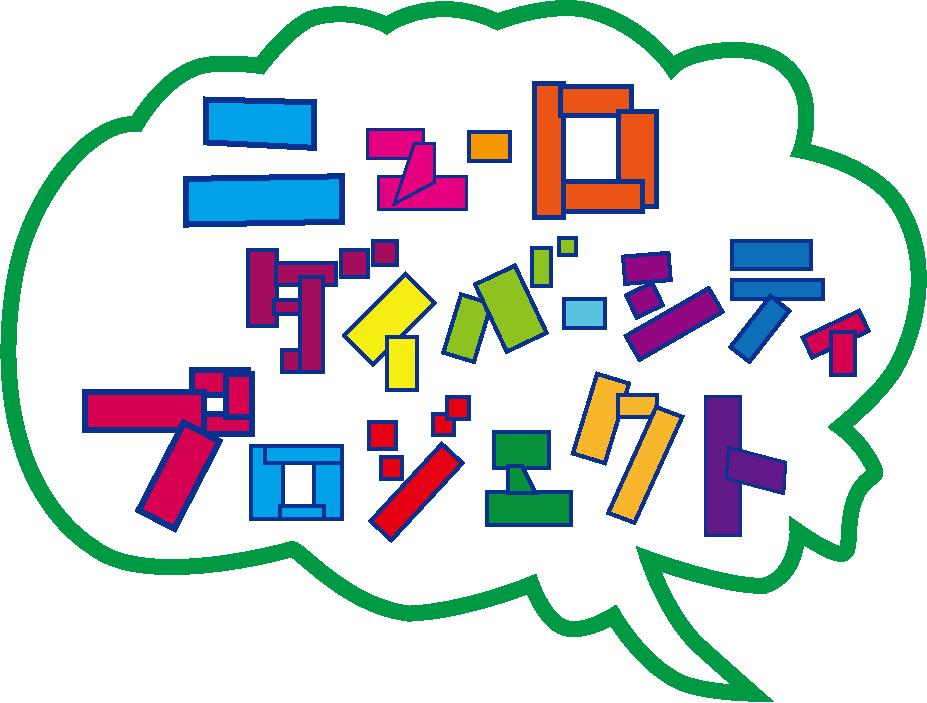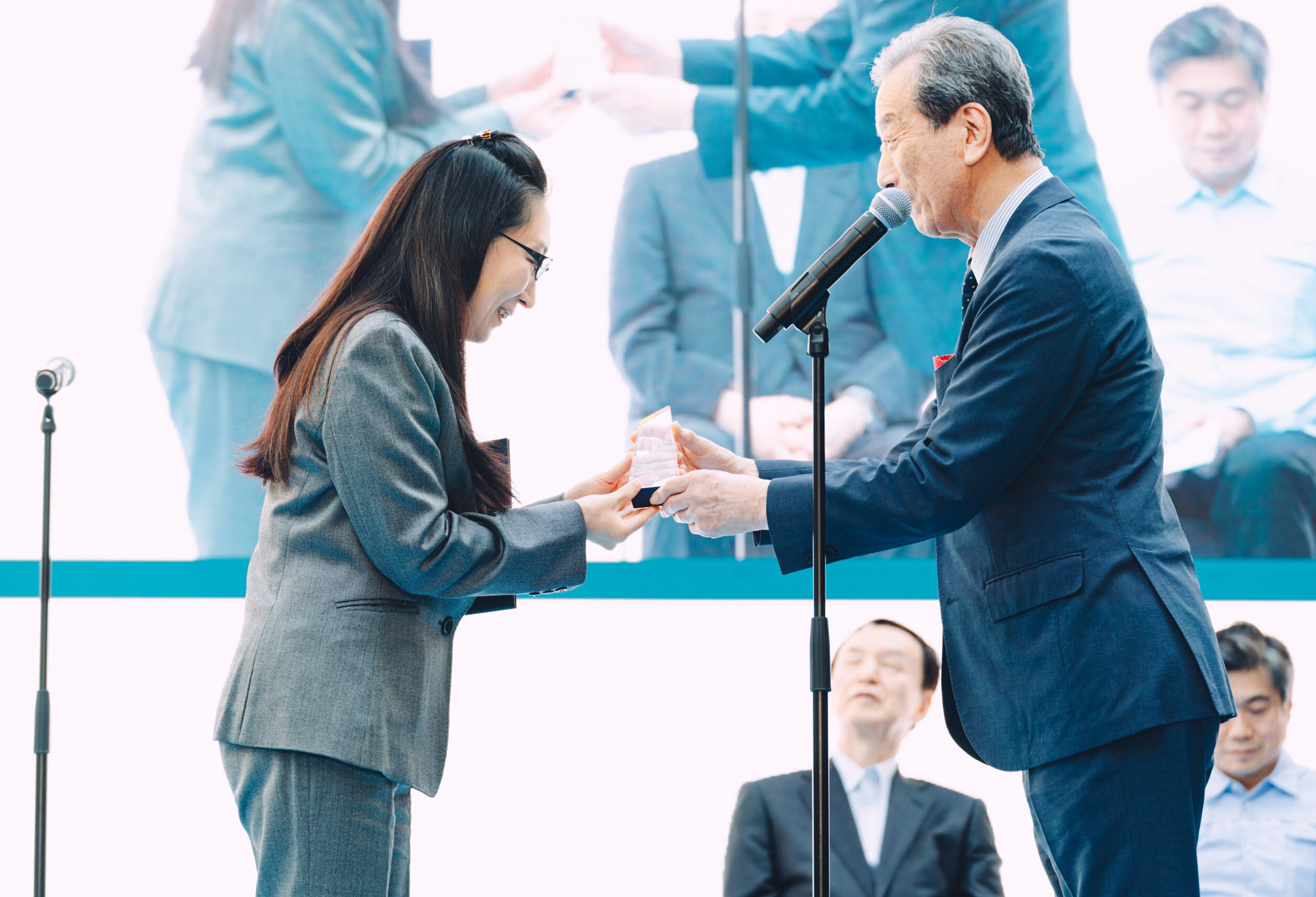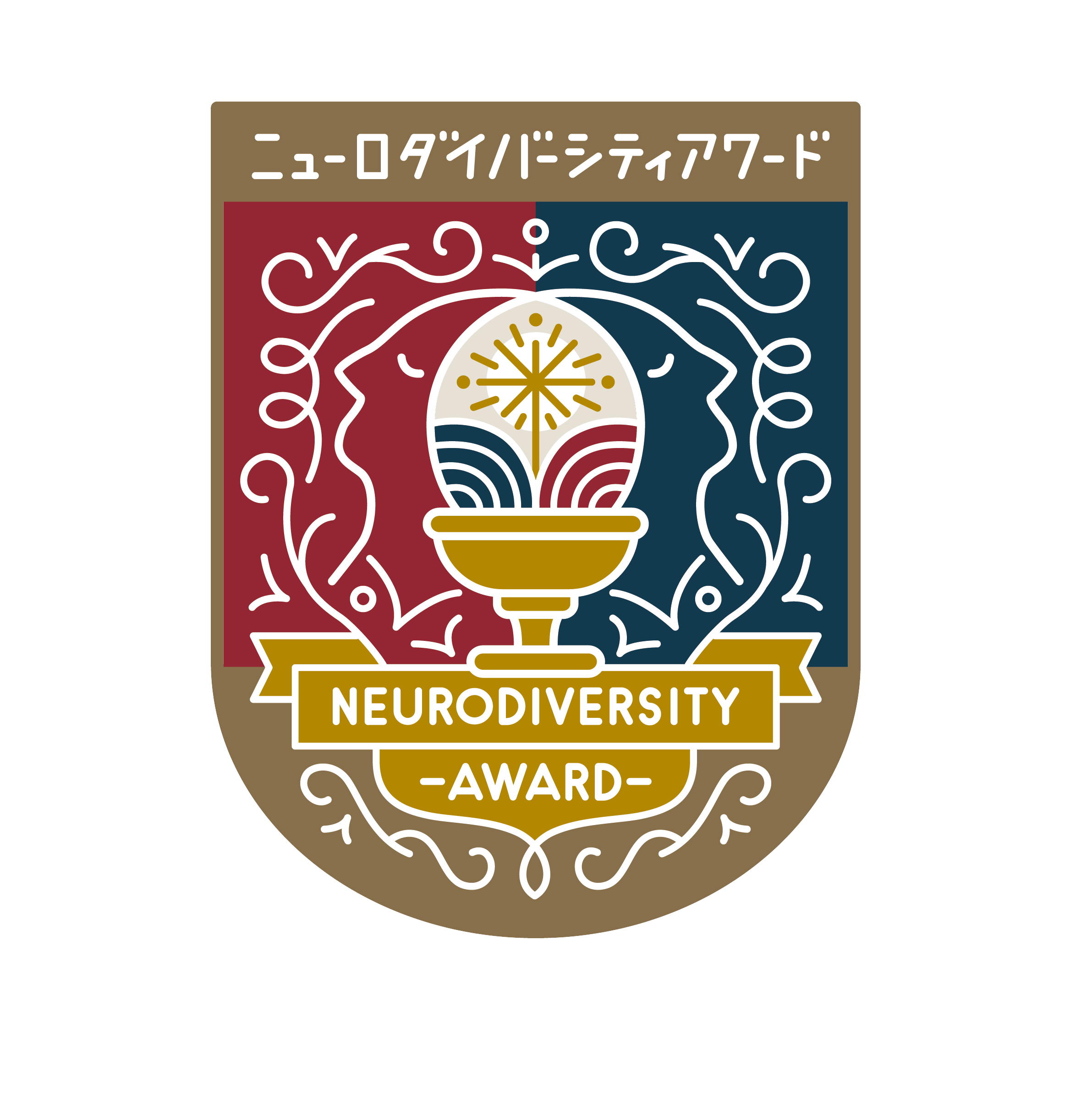
NEURODIVERSITY AWARDS
The Neurodiversity Awards, Japan aim to promote understanding of neurodiversity and build a society where each individual can demonstrate their unique strengths in their own respective places.
The promotion of neurodiversity can unlock new creativity and contribute to the development of society as a whole. Through this award, we aim to recognize outstanding achievements in technology, products, social actions, and more, while deepening understanding of neurodiversity and paving the way for greater diversity and inclusion in society. We welcome applications from a wide range of participants, including students, researchers, and businesses from all around the world.
About Neurodiversity
Many people struggle with a sense of ‘difficulty in living.’ They find it challenging to connect with others, have trouble fitting into society, and suffer from a lack of a place where they truly belong.
It has become increasingly clear that this struggle often has its roots in neurodiversity. When individuals are unable to fully demonstrate their strengths and face difficulties in various situations, they are often labeled as having a developmental ‘disorder,’ and their unique traits are viewed as problems.
However, the ‘difficulty in living’ that people experience arises from the interaction between individual traits and their environment. Many of the geniuses who made some of the greatest inventions in history are said to have had brains that functioned differently from the norm. For example, Elon Musk, a well-known entrepreneur, has publicly disclosed that he has Asperger’s syndrome (now recognized as part of Autism Spectrum Disorder: ASD, as per the DSM-5 criteria released by the American Psychiatric Association in 2013). Additionally, filmmaker Steven Spielberg has disclosed that he was diagnosed with dyslexia, a learning disability, and it is also said that he may have co-occurring autism spectrum traits. However, by placing themselves in environments where they could leverage their unique characteristics, these developmental traits have become strengths rather than disabilities. People with the same traits may become charismatic leaders or struggle with employment, depending on their environment.
We believe that by respecting individual traits and creating appropriate environments, we can transform what has been perceived as ‘disability’ or ‘difficulty in living’ into ‘strengths’ and ‘ease of living.’ Human brains and neurology are incredibly diverse, a concept known as ‘neurodiversity.’
We all have our unique characteristics, and the concept of neurodiversity applies to everyone. When the interaction with the environment crosses a certain threshold, individuals are labeled with ‘disabilities’ or ‘illnesses.’ The line between disability and ability, illness and health, is not clear-cut; it is continuous. Therefore, even those who are not labeled as having a disability or illness may feel a congenital difficulty in living in modern society. Some may develop mental health issues due to a lack of supportive environments and social maladjustment. Neurodiversity is an important concept not only for those with developmental traits but for everyone, as it is essential for living richly and authentically.
We are committed to promoting understanding of neurodiversity and working towards building a society where each individual can demonstrate their unique strengths in their own place.
Neurodiversity awards
2024
CONGRATULATIONS TO ALL THE WINNERS!
WINNERS
Social Implementation Category
![]() WINNER
WINNER![]()
『Bethel’s Initiatives: Community Activity Hub for Individuals with Mental Health Disabilities and Other Challenges』
Urakawa Bethel House, Social Welfare Corporation (JAPAN)
![]() RUNNER-UP
RUNNER-UP ![]()
『Inclusive Shopping Environments』
ASDA (U.K.)
『Neurodiverse Friendly Town』
Neurodiversity Ireland (IRELAND)
○ NEURODIVERSITY PRIZE ○
Employment Transition Support and Independent Living Training Leveraging the Strengths of Developmental Disabilities / Neurodiversity Summit JAPAN 2024
Kaien Co., Ltd. (JAPAN)
Quiet Hour Initiative for Individuals with Sensory Sensitivities
Yamada Holdings Co., Ltd. (JAPAN)
Mahora (まほら) Notebook, Created by Listening to the Voices of Individuals with Developmental Disabilities
Oguri Paper Co., Ltd. (JAPAN)
Social Media Platform ‘TETETOKO’ Connecting Through Children’s Developmental Traits
ZiZO Co., Ltd. (JAPAN)
Hidden Disabilities Sunflower
Hidden Disabilities Sunflower Scheme Limited (U.K.)
The Neurodiversity Umbrella Project
The ADHD Foundation Neurodiversity Charity (U.K.)
La Città dei Bambini e dei Ragazzi ~Experience Museum~
La Città dei Bambini e dei Ragazzi (ITALY)
Research and Development Category
![]() RUNNER-UP
RUNNER-UP ![]()
『Avatar Robot ‘OriHime’』
OryLab Inc. (JAPAN)
『Training Program for Understanding and Empathy towards Developmental Disabilities through VR Experience and Expert Commentary』
NTT ExC Partner Corporation (JAPAN)
AWARD CEREMONY 2024
Date and Time: Saturday, October 12, 2024, from 14:30 to 15:00
Location: Tokyo Portcity Takeshiba Office Tower
(1-7-1 Kaigan, Minato-ku, Tokyo 105-7590)
The ceremony will take place within the “Change Tomorrow (Abbreviation: Chomoro) 2024” event.
Award & Congratulatory messages!♪
Award Comment
Hidden Disabilities Sunflower Scheme Limited (イギリス)

Congratulatory message
At the award ceremony, we received a congratulatory message from the British Council, the UK’s international organization for cultural relations and educational opportunities.
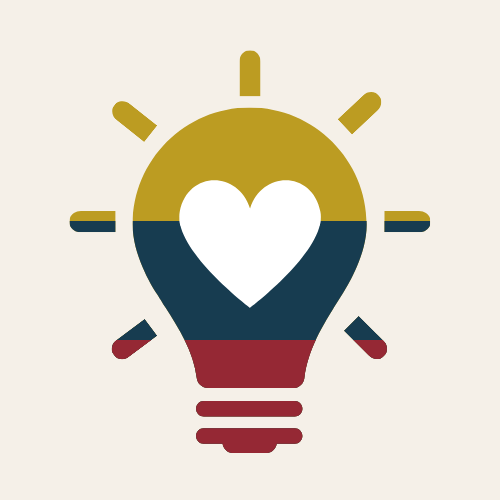
EVALUATION CRITERIA
![]() INNOVATION
INNOVATION![]() SOCIAL ACCEPTANCE
SOCIAL ACCEPTANCE![]() SUSTAINABILITY
SUSTAINABILITY

APPLICATION REQUIREMENTS
・This award is open to all individuals and organizations interested in neurodiversity, including students, researchers, schools, companies, government agencies, and public interest foundations.
・Self-nominations and third-party nominations are both accepted.
judges
(Honors omitted, in Japanese alphabetical order)
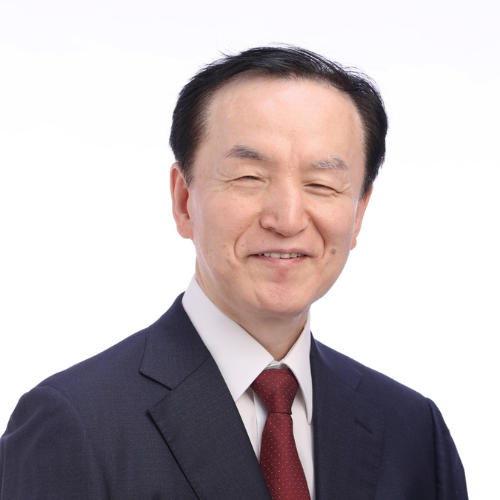
16歳の時に網膜剥離のため失明。東京大学文学部卒。東京大学大学院社会学研究科博士課程単位取得退学。博士(社会学)。静岡県立大学教授や東京大学特任教授、内閣府障害者政策委員会委員長、国連障害者権利委員会副委員長などを歴任。
ISHIKAWA, Jun
(静岡県立大学名誉教授/有限会社エクストラ取締役社長/障害学会会長)

デジタルアーキテクト、ベンチャーキャピタリスト、起業家、作家、学者。教育、民主主義とガバナンス、学問と科学のシステムの再設計などさまざまな課題解決に向けて活動中。米マサチューセッツ工科大学(MIT)メディアラボ所長、ソニー、ニューヨークタイムズ取締役などを歴任。株式会社デジタルガレージ取締役。デジタル庁デジタル社会構想会議構成員。2023年7月より千葉工業大学学長。Neurodiversity School in Tokyo共同創立者。
ITO, Joichi
(株式会社デジタルガレージ共同創業者取締役/学校法人千葉工業大学学長/Neurodiversity School in Tokyo 共同創立者)
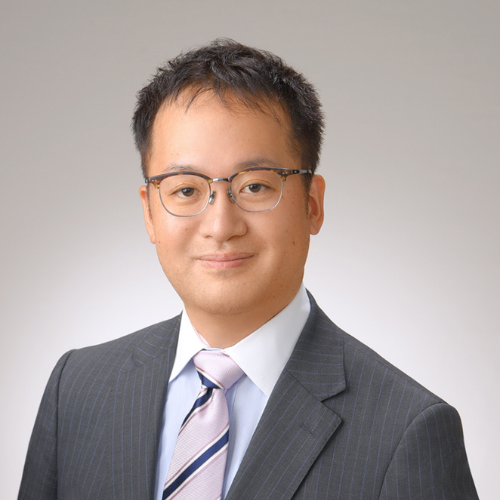
自在化技術、人間拡張工学、エンタテインメント工学に興味を持つ。 米TIME誌Coolest Invention of the Year、文部科学大臣表彰若手科学者賞、文部科学大臣表彰科学技術賞(研究部門)などを受賞。 情報処理学会理事、日本バーチャルリアリティ学会理事、日本学術会議連携会員等を兼務。 著書に『スーパーヒューマン誕生!人間はSFを超える』(NHK出版新書)、『自在化身体論』(NTS)他。
INAMI, Masahiko
(東京大学総長特任補佐/先端科学技術研究センター副所長・教授)
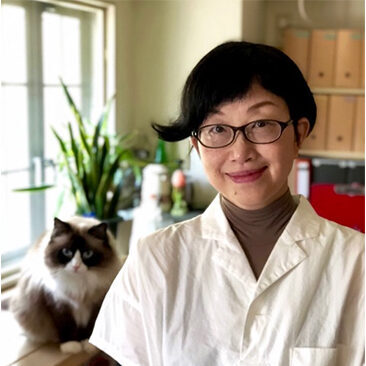
1980年代よりコンピュータを使った映像作品制作を開始。子ども向けTV番組にCGアニメーションやバーチャルセットデザインを提供。1990年代にはCD-ROM作品をリリースしマルチメディア展覧会を行う。様々なハードウエアに向けた音楽ゲームの企画・制作に携わり国内外で発売、受賞多数。企画・キャラクターデザイン・グラフィックスを手がけたプレイステーションのビデオゲーム「ビブリボン」(1999年発売)は、2012年にニューヨーク近代美術館(MoMA)のコレクションとして収蔵された。2010年台に入り「こども」「クリエイティブ」「遊びと学び」をキーワードに、デジタル+アナログを活かした新しい概念の絵本やクリエイティブワークショップを研究開発中。
KIRI
(アーティスト/女子美術大学アート・デザイン表現学科メディア表現領域教授)
